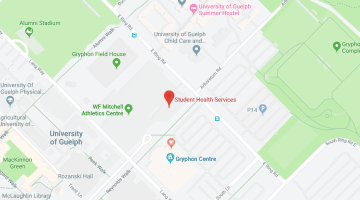

With the cold and flu season upon us, there are many steps you can take to support your body to reduce the risk of more severe illness. Consider the following in your daily life provided by the Health and Performance Centre's Naturopathic Doctor, Dr. Kristina Brooks [1].
Get adequate sleep
- When we sleep, our body can rest and rebuild from our previous day’s activities.
- Research suggests that insufficient sleep (6 hours or less) significantly reduces the production of our “Natural Killer Cells”. These immune cells are important surveillance cells for detecting disease.
- Try going to bed and waking up at the same time every day.
- Make sleep a priority and plan for at least 7-8 hours of sleep each night.
Consume a source of protein with each meal
- Amino acids found in protein are the building blocks for all the body’s cells, including the cells that form our immune system. One way the immune system fights back against viruses and bacteria is to make more white blood cells (our immune cells).
- To adequately support the immune system, have a protein source with each meal.
- This may include foods such as meat, eggs, dairy, beans, lentils, nuts, seeds, and soy products.
Drink plenty of fluids
- Water is essential to health – it regulates body temperature, removes wastes, and transports nutrients throughout the body.
- Hydration is essential to support the skin and our mucous membranes including the nose and throat. These are our first lines of defence against disease.
- Coffee & tea consumption, intense exercise & heat exposure increase the need for more fluids
- Try carrying a water bottle with you, and place one at your desk while you are working to remind yourself to drink throughout the day.
Make time for Rest and Relaxation
- It is normal to experience brief periods of stress throughout the day. Prolonged stress and worry may hinder your immune response.
- Be sure to spend “you” time each day to help promote relaxation. This may include activities such as taking a relaxing walk, having a hot bath, meditation, or taking 5 minutes to practice deep breathing.
- Make time to do something that brings you joy.
- Relaxation allows us to have a clearer mind, improve concentration, memory and promote a healthy immune response.
Consume Whole Foods When Possible
- Foods such as fruits/veggies, beans/lentils, nuts/seeds, and whole grains provide us with a variety of vitamins and trace minerals to not only support general health, but also support a healthy immune response.
- The fibre provided by these foods will ferment in our gut to help fuel healthy bacteria. A diverse and robust community of healthy bacteria in our gut may support immunity.
- Try to fill half your plate with veggies. Choose brightly coloured fruits and veggies to maximize nutrient content & variety.
Regular Moderate Exercise
- Regular, moderate exercise can boost cellular immunity by increasing the circulation of immune cells. These help our body to detect and fight invading bacteria and viruses more efficiently.
- The duration and intensity of exercise is important. If you overdo it, you may hinder your immune response.
- Choose an exercise that you enjoy, and you will be more motivated to stay consistent. If you do not exercise regularly, please check with your doctor before starting an exercise routine.
***Addressing underlying health concerns is the most effective way to support a healthy immune response. If you are considering taking natural health products to support your immune system, or other means to improve your health, consider a visit with a Naturopathic Doctor to review a plan that is right for you.
If you are interested in Naturopathic Medicine and would like to learn more, please call 519-767-5011 to schedule a FREE 15min consultation with Dr. Kristina Brooks.
Naturopathic Medicine is not covered by OHIP, but coverage is provided by many insurance plans, including the University of Guelph’s, MyStudentPlan [2].
